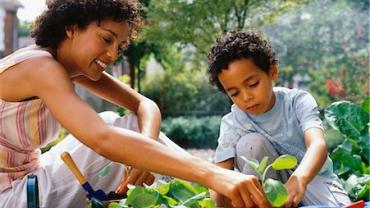
If you’re looking for something beautiful practical delightful to the senses and beneficial for physical and mental health it would be hard to beat a garden. For supporting overall health and wellbeing of course diet and exercise are fundamental. But other less often thought about issues may be no less important. There’s sharing love and affection with pets listening to music curling up with a good book and hey a little bit of chocolate every now and then doesn’t hurt!
One of the most underappreciated—and simplest—interventions that can improve a multitude of physical and psychological ailments is spending time in nature. (Plus it’s free. Hard for any pharmaceutic drug to top that.) Whether it’s breathing fresh air being exposed to natural light hearing birds chirp or some combination of sensory inputs being outdoors seems to instill positive feelings that are difficult to precisely define but which penetrate deeply.
Along those lines gardening is a hobby that brings together a confluence of factors linked to improved physical and emotional health: physical activity stress relief exposure to soil-based microbes time outdoors and more. You might even say gardening is therapeutic as popular Paleo/Primal blogger Mark Sisson did alluding to rich black soil teeming with fertility and musing about “the sensory pleasure of soft cool crumbling between ungloved fingers the physical primordial delight of digging and absorbing oneself in the earth.” And the good news is you don’t have to actually be good at it to reap the benefits. People with black thumbs might feel a bit more frustration and disappointment than those under whose green thumbs everything seems to magically thrive but that won’t negate the myriad positive aspects of cultivating plants. The second bit of good news is you don’t need a huge plot of land to grow a garden. You can do a lot in a small amount of space including urban areas. No plow or pitchfork required!
Gardening could be beneficial for people of all ages but according to a study conducted in South Korea older women (age >70 years) who participated in twice weekly gardening sessions for 50 minutes (15 total sessions) experienced small but significant improvements in muscle mass aerobic endurance hand dexterity and cognitive ability with a decrease in waist circumference. A control group made up of subjects who did not participate in gardening did not realize these benefits. In fact compared to the gardening group—who did not experience any change in depressive symptoms—the control group had an “increase in scores for depression with symptoms progressing from normal before the intervention period to moderate depression symptom at the end of the study.”
If you’ve ever had sore knees or a tight back after a day in the garden then you know it can be physically taxing. Pulling weeds digging with spades and trowels—it’s no wonder this activity can improve hand strength and pinch force. And if you don’t have a wagon or wheelbarrow hauling 20-plus-pound bags of soil and mulch is no slouch of a workout! Plus if someone expends this much effort to grow vegetables and fruit—or participates at all in growing food—they’re likely to consume these wholesome foods more often than those who don’t. According to a study conducted in Flint Michigan—an area not famous for agriculture—adults with a household member who participated in a community garden were more likely to consume produce several times daily.
But beyond these physical aspects of gardening getting “up close and personal” with plants and soil may confer effects that are less tangible but no less beneficial. For example exposure to certain bacteria in the soil may raise serotonin levels in the brain. Gardening is also good for stress relief and promoting a positive mood. Except in the case of having to concede defeat if a particular plant has to be culled it’s hard to imagine gardening not having positive effects on mood. There’s also the sense of pride and satisfaction that comes from cultivating and nurturing something beautiful not to mention growing one’s own food if it’s a vegetable or fruit garden.
It might take an initial investment to get a garden started: good soil tools seeds and other basics. But over time the return on that investment is well worth it.